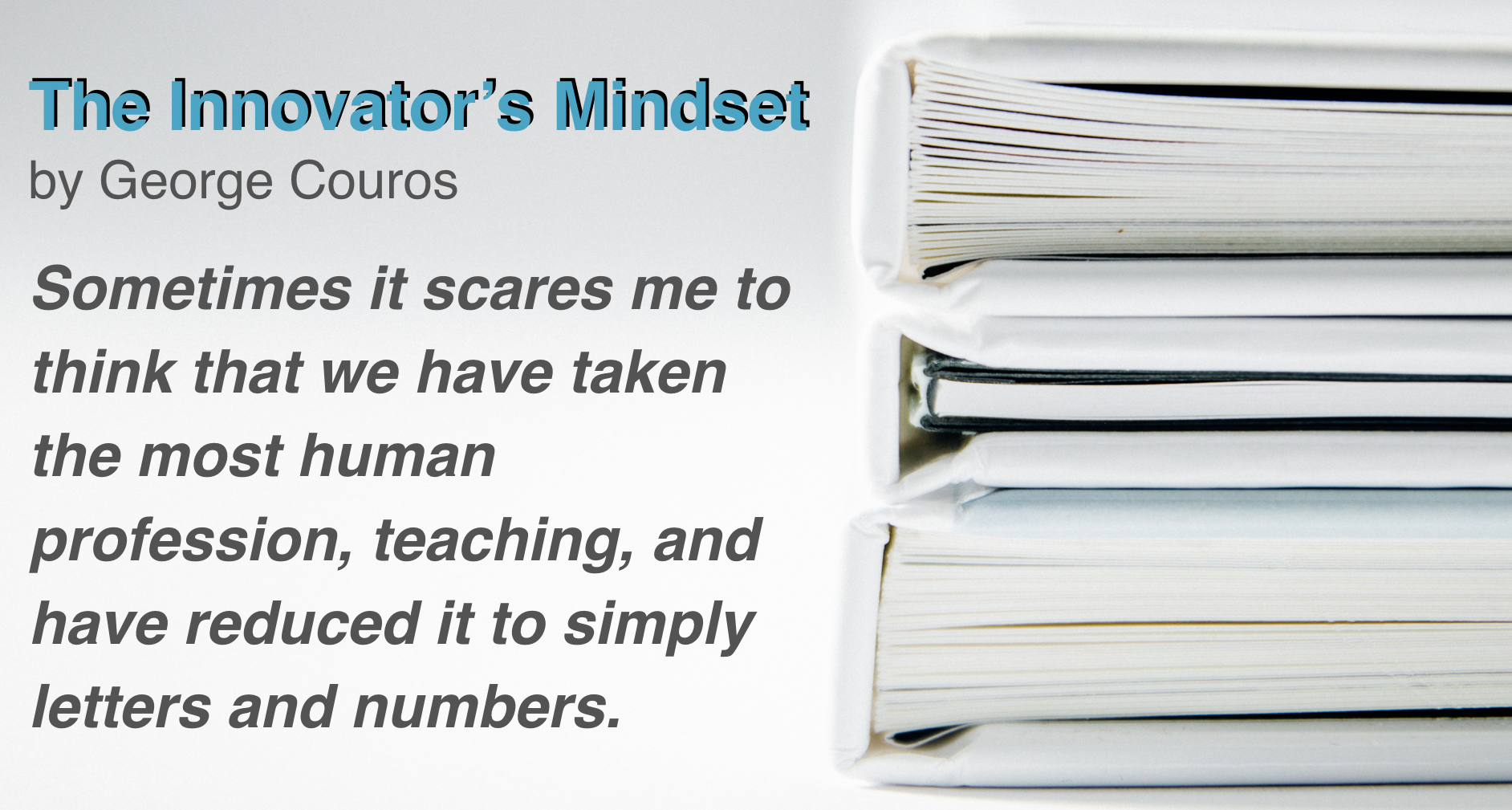Change. A word used all the time. An action pushed upon educators time and time again. Change is an important word to break down because if we don’t have a why and purpose change can lead us down the wrong path.
In the simplest term I can come up, I think asking yourself the following question leads to whether or not you(educators) should change is to ask yourself:
Would you enjoy reading student work if you didn’t have to?
Before I go any further I think this question tackles the fundamental principles to change in education. If we can answer YES, then we have something good and worthwhile for both educators and students and we have a win win situation.
If you answer NO, then perhaps it is time for change. If you answer NO after making the change, then perhaps you made change for the wrong reason.
In the book Innovator’s Mindset by George C0uros he defines innovation “as a way of thinking that creates something new and better“.
If we go with this definition of innovation and keep the concept of change in the forefront of our thoughts, then what are some examples that are considered innovative? How is it new and better than what previously existed?
These are very important questions for us to tackle and process. Anytime we think of innovation and change we must first think about how we teach, the way we conduct our classroom, and more importantly how do both the teachers and the students learn?
Time and time again we see examples of change happening all over the nation(primarily technology), but because they have not changed practice, pedagogy, and focused on the WHY of the change nothing really happens. As George states in the book, “we have many twenty-first-century schools with twentieth-century learning.”
What happens is that paper worksheets simply move to a digital version. The same old seat work of low level work, uninspired purposeful learning continues, but we convince ourselves we are doing innovative work. It instantly makes me think of a book idea I have called QR Codes Kill Education where I have examples of technology being used in useless ways. One example I see time and time again is student work hung in the hallways with QR codes attached, but never seeing a person scan the code because
- there is a “no cell phone policy” in the school making it useless
- in reality what parents or visitors of schools have QR codes on their phones?
Or why is it that children enter school loaded with a million questions, but by the time they reach the secondary level they have that zombie look where all life has been sucked out of them? We as educators must work to keep the flame of inquiry alive and burning so that we can all benefit from the learning process.
What I am challenging educators is to work towards purposeful innovation. If we remain innovative, then the result will be that students will create innovative work. This begins in the culture of the building. It cannot be something told to teachers and then expected they figure out on their own time. It should be built into the school culture. PD should be devoted to innovation. It should be part of the school day and if teachers want to explore further they can and should be allowed to as part of their professional learning and growth. And I would bet money that most teachers will devote more time because that is just who they are and how they operate.
Another way to push towards an innovators mindset is to focus on the possibility of innovative thinking. What happens when we think as a manager and not a leader(a whole other topic for another time) is we spend our time on all the bad and all the things we don’t want students to do. Instead of complaining about kids will do this and kids will do that, why don’t we focus on what kids will be able to do in a positive light?
As I continue to read the book and process what I think is needed in schools and innovation I keep coming back to the idea that I wrote about earlier this year that average does not exist. Teaching is the most human connecting thing we do. We must make sure that we don’t simply reduce learning to letters and numbers. I was just discussing with an amazing teacher about how important it is to refresh ideas for teachers to tackle mental health, poverty, and all the factors that students deal with on a daily basis. Learning is more than numbers. We must connect with students as people. If we can do that, then innovation will start to grow and develop. I love the part of the book where Dr. Joe Martin says so well, “No teacher has ever had a former student return to say a standardized test changed his or her life.”

Leave a Reply